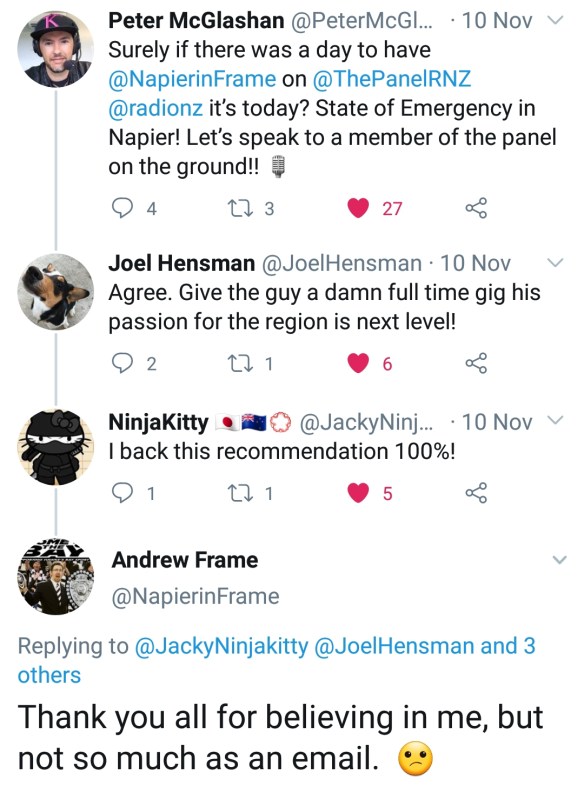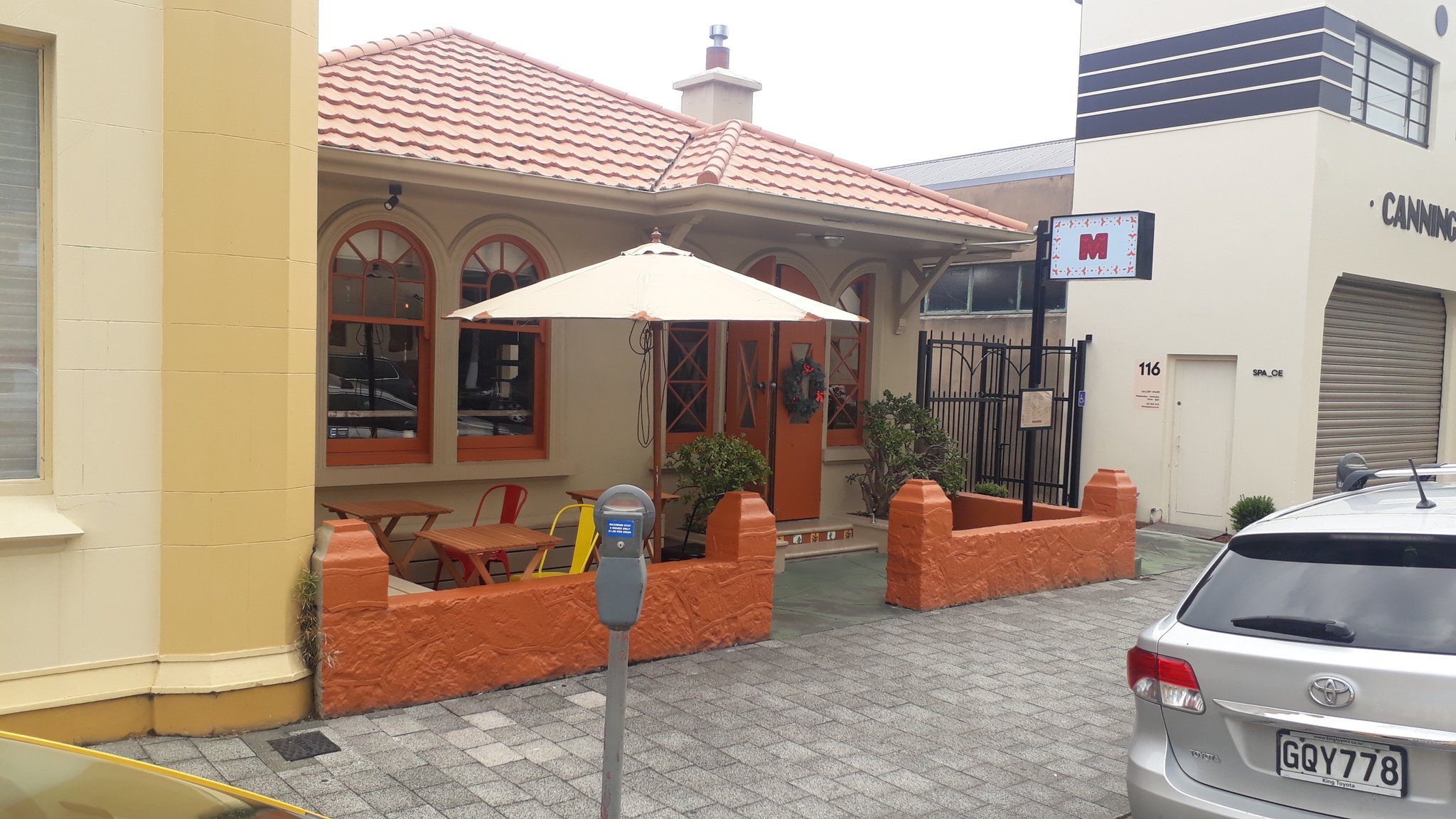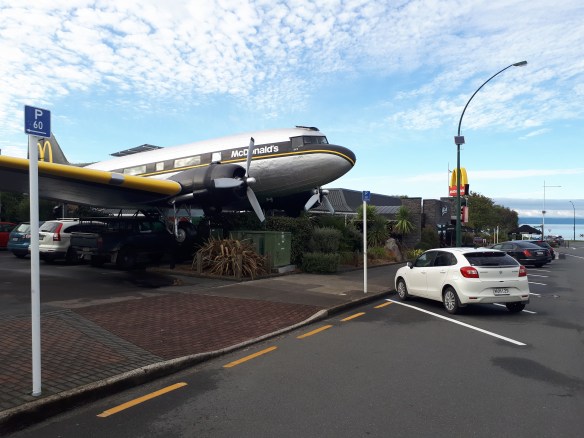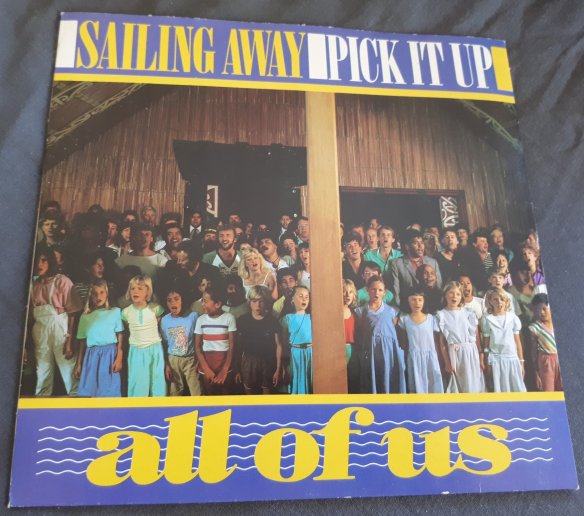2020 – It’s been a year and ah half, hasn’t it?
From plagues, to floods it has been an interesting 12 months. For me it’s been tiring and painful, but we’ve made it and I still feel like I have some fuel left in the tank, unlike 2019 which couldn’t have gone on for a week longer.
The year started off simply enough: Jokes about “2020 vision”, looking forward to an extra day tagged onto the end of February thanks to it being a leap year, Oh and Australian bush fire smoke turning our skies all shades of yellow and brown and almost blotting out the summer sun!

(We really should have taken than as an indicator!)
Over the space of one January weekend our neighbor and I drastically changed the landscaping of our properties’ border, cutting down several trees and clearing a ton of dirt and green waste in anticipation of building a new border fence (due to 2020 in general we hope to get around to STARTING this fence in January 2021..).

It was one of those very hard, manual jobs that you sit back and admire once completed with a real sense of satisfaction of a job well done!
When not using big, brutal tools, I also made a couple of delicate 1/72 scale models that had been sitting in my garage for too long: A Bristol Beaufighter and a North American Sabre. I had only built one kit in 2019, almost as an after-thought and really fancied making more, as my stash of kits was surpassing “sizeable” and heading into “hoarding” territory, so decided I’d better keep building while the flame was lit (possibly not the best metaphor for a hobby that involves flammable paints and glue..).

I commentated double-header Supersmash T20 games at McLean Park on the second of January – The Central Hinds and Central Stags played the Otago Sparks and Volts respectively in back-to-back matches. I got to go out to the central block and watch the coin toss for the Stags’ game – a bit of a dream come true.

As I’ve written before, I enjoyed the commentating – It was a great new, unexpected broadcasting opportunity that arose for me. Then it sadly evaporated even more quickly when, a month or so later, NZ Cricket announced it was not continuing with Radiosport as its radio broadcast partner and then, as if to plunge the dagger in even further NZME closed down Radiosport altogether as the wider effects of Covid 19 took their toll on gatherings, including team sports.
This wouldn’t be my only media let-down of the year.
After being invited onto Radio New Zealand National’s The Panel three times each year in 2018 and 2019 I didn’t get invited on at all in 2020.
I don’t know what I did, or didn’t do, to deserve this snub, as they never replied to my tweets enquiring why. But given they had Michelle Boag on three times in almost as many months in the early part of the year (and look how that ended up) it might have been a bullet best dodged after all.
I played my one and only game of cricket for the 2019/20 season in February and took two catches – A new personal best!

Then along came Covid 19
There had been stories in the news since late 2019 about a respiratory disease that had started spreading across the globe after ravaging China, Iran, Italy and a number of other countries. With the nature of international travel it was only a matter of time before it reached us here. On March 26th New Zealand went into a nation-wide isolation Lockdown.
The lead-up to Lockdown, for me, was madness.
For the last sixteen years I have worked in the same office as my father-in-law, splitting 5am starts between the two of us on alternating weeks. But my FiL has chronic asthma issues and has been sick off and on for elongated periods over recent years. He had gotten sick after returning from a trip to Australia in February (non-Covid related despite it involving a cruise too!), So I was on early starts, working solo for almost a month at the start of the year.
I was still tired and worn out from 2019 and covering this February holiday when the Covid lockdown levels were announced. With his health issues putting him in one of the at-risk categories, he had to work from home from level 3, which meant I was working solo then, too. But with the added impending doom of a looming pandemic, in a job that involved interacting with hundreds of people each day (either personally, or via documents others had handled, so having to wear masks and gloves) I ended up having what turned out to be an anxiety attack one evening (I only realised this the next day when, using a work bathroom, a aptly-placed mental well being poster just happened to list all the things I had felt the night before).
The stress of getting everything ready for lockdown didn’t abate until the lockdown itself took effect. I wasn’t given a work computer or phone, so couldn’t work from home giving me, essentially, an enforced four week holiday.

For the month of Marpril 2020 (yes, I do consider that a viable month) New Zealand stayed at home, in our bubbles.
We shopped sparingly for food, keeping personal distances at all times. Our children learned via the internet and “Zoom”, while adults primarily used the internet for social media and ordering alcohol for home delivery.
While I would have loved to have written more during lockdown I only managed to write one thing:
A Tale of Two Countdowns
Explaining the mystery of why Napier has two Countdown supermarkets across the road from each other.
Amazingly it has had over 4,000 views since then – By far the most viewed thing I have written on Napier in Frame!
Otherwise, we read lots, played games with our family, tweeted lots, I made some more models and, as a nation, we made a metric $hit-tonne of sourdough and other baked goods (because those 20kg bags of flour that were the only available purchasing option weren’t going to bake themselves!).

Personally, I got to sleep in more often than I ever had in the past decade and a half, and have more concurrent time with my family (and snuggles with my daughter) than in a long, long time.
By and large we survived!
I describe my lockdown as “the eye of the storm”.
Just like tropical hurricanes in the Caribbean the storm builds and builds, until you get to the “Eye Wall” – where the wind and rain are at their strongest and the worst.
Then you get into “the eye of the storm”. The sky is clear – often blue, calm and sunny. But with the worst part still on every horizon.
That is what lockdown was like for our family. The weather was warm and summery (despite it being Autumn) and things were quiet and calm, yet we knew there was danger all around.
Then, as the country went down to level three, I went back to work (still sans father in law), and the other side of the hurricane’s eye wall hit in the OPPOSITE direction as we played catch-up.
All up I worked solo for about three whole months this year. It pretty well buggered me. It took up lots of my time that would otherwise have been “spare” and, when I did have “spare time” I didn’t have the energy, or the motivation to do anything!
The day after it was announced we were going down to level two and I could relax a bit with father in law and others returning to work I got a call from the hospital asking to operate on me.
Late last year I had been in for a check-up on my BCCs (Basal Cell Carcinomas) and they had identified some more that needed removal. Covid and the lockdown had put any work on hold, so at the first opportunity I was one of the first people they called and a week later I was in getting seven BCCs removed in one fell swoop (more than on my previous trips down to Lower Hutt) at the Napier Health Centre.

Maybe it was the sheer scale of the procedure (I ended up with at least one significant scar from where one BCC which hadn’t been fully removed the first time years ago had grown back and needed removing again), or the overarching stress of the year, but my recovery was longer, and felt more physically and psychologically painful than any of those that preceded this year’s surgery and a few minor complications did not help matters.
I had only just recovered from the first round when a second lot of surgery removed some more BCCs a month later.
I felt ugly.
That didn’t seem like a regular thing for a kiwi guy to say or think, but I did. And I was annoyed at myself for feeling like that.
It was what had done so much psychological damage to my mum after her surgery over a decade ago and I had sworn to never fall into that trap myself.
I didn’t hide away like she did, but I still felt it.
Fortunately around the same time, as we headed into winter, I managed to get some new clothes, either on sale, or from vouchers I had earned from online Nielsen surveys and the like.

After months of nothing but fluro hi-viz, polar fleece and bandages I was able to treat myself to new jeans, a new shirt and a merino jersey. I felt like I looked better and at least one of my sartorial superheroes agreed.

After lockdown and surgery issues had abated I had some time to write, which was good, because Bay Buzz magazine would end up commissioning me to write three 1,500+ word pieces this year – another personal best!
One of the things I love about writing (other than getting paid occasionally) is all the new stuff you get to learn. This year I learned about Hawke’s Bay’s tourism sector recovery, council online communications, and those lesser known companies who help produce, provide and present our local foods to HB, New Zealand, and the world. All of which makes me even prouder of my home!
Rocket Lab’s continued launches from Mahia provided a regular reminder of how awesome our region can be.
Also making me proud of Hawke’s Bay was our local NPC team the Hawke’s Bay Magpies!
After last holding the Ranfurly Shield six years ago they beat Otago to reclaim it again this year, and successfully defended it throughout the rest of the season, with Hawke’s Bay now holding it over the summer months (and almost every single person in the region who hasn’t already had their photo taken with it pretty well guaranteed of the opportunity now)!
The Magpies also won the Championship title to cap off a great season.

There’s Something About those Magpies. It’s not just a rugby thing, either. When Hawke’s Bay’s rugby team do well it seems to lift the mood and spirit of the region.
We needed to recover from the lockdown economically, commercially, and socially and by most indications it looks like Hawke’s Bay is recovering better than other regions. It just so happened to be at the same time as the Magpies were collecting all the silverware!
I know.. “correlation does not imply causation blah, blah, blah…” but it’s worked for us so far, so there!
Although, perhaps it was more “pride coming before a fall”, because just before the end of the rugby season 2020 had another go at us.
On the 9th of November Napier, and in particular the city’s CBD and suburb of Marewa suffered significant flooding and related rain damage after one of the longest, most contunually persistent downpours in an afternoon than most locals had ever experienced.
We were caught on the edge of events, getting drenched picking our daughter up from school, then coming home via main roads that would soon be impassable to watch our front and back yards get slowly inundated with rainfall and yanking out our downpipes from the roof gutters as they had begun to overflow.

We stood at the window watching the creek we live across the road from rise and rise (about 15 meters across for every one meter up, just to give you an idea of just how much water this event involved.) The next day a “high tide mark” of leaves, sticks and so on would reveal the creek was a mere meter away from breaching its bank opposite us and overflowing into the street!

A kilometer or so down the same road from us people were not so lucky. Streets, and almost the entirety of Whitmore Park (the big, rectangular lake in the aerial shots of the area) were inundated, houses flooded, possessions lost and people displaced. Many have still yet to return to their homes, which still require repair as I write this on New Year’s Eve.
I must thank Alex Braae for giving an article I wrote about Napier’s drainage problems the last time we had similar issues a few years ago a boost when reviewing the November downpour. Getting a shout-out in The Spinoff was another unexpected turn that 2020 took!
With all the craziness going on, perhaps the best move for 2020 might have been taking the advice of David Slack, who wrote about stoicism on Stuff in early January:
“Concentrate on what is within your power to do. Disregard the hysteria and wrongness around you. Preoccupy yourself with doing what is in your power to be done.”
It’s just what David did, too, as Stuff (still under Australian ownership at the time) let him and several other womderful wordsmiths go around the same time other NZ media were being closed down or severely cut back by their owners in the face of Covid’s financial fallout.
David “preoccupied himself with what was in his power to be done” and started his own page “More Than a Feilding“. It has gone gangbusters!
He is a lovely, literarly inspirational man!
I needed stoicism for one of my new ventures this year, too: I became a Hawke’s Bay Cricket Umpire!

After about 15 years of playing and player-umpiring I was invited to join and have spent the first half of this season umpiring T20 matches, including two weekends of HB’s famous Kilbirnie T20 tournament.
It’s a lot easier and more enjoyable than player-umpiring I must say. As, rather than having to worry about what the score is, who is batting next and do I need to go and pad up, all I have to be concerned with is counting to six and deciding if the ball that just hit the batsman on the pads would have hit the stumps if their leg wasn’t there. Plus you occasionally get lunch and beer!
It has been a tough year. Lots of ups and downs, with lots of unexpected twists and turns, but we’ve survived!
For now.
New Zealand’s “Tyranny of Distance” turned out to be quite beneficial in some respects. But it will also provide lots of challenges in the coming months – just look at the backlog of cargo ships waiting to unload out off most of New Zealand’s ports right now.
I am, as always, thankful for my friends (online and real life) and family this year.
I am grateful for the opportunities I have been given this year (does that mean I get to be UNgrateful for those I wasn’t given?).
And I am most inspired, humbled and amazed by my wife, and my daughter who turned seven this year and completing her second year at primary school.
The care, compassion, intelligence and love she shows continually amazes me.
On her end of year school report her teacher closed it out with the phrase:

I had to Google what that line was and I have to say I teared up a bit because:

I hope your 2020 wasn’t too disturbed, wet, or worrisome and your 2021 will be steadier and more illuminated.
As always, thanks for reading and all the best for next year!
AF
















































































